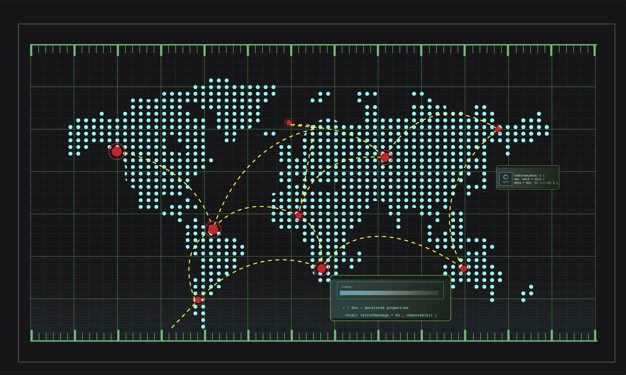
Was there a time where you stumbled across online news talking about DDoS attacks? Have you ever wondered what DDoS attacks mean, and why are they such a big deal in our present-day technological world? Or have you wondered why is it so easy to online attack such important institutes in our society?
Those are not underrated questions to be asking. After all, we do live in a tech-based society where all of our most important info and life events are all wrapped in one single smartphone. If banks and high-level companies are susceptible to those threats, why shouldn’t a regular citizen be worried about them?
DDoS – Distributed Denial of Service
DDoS is the multiform of attack derived from DoS – Denial of Service. A DoS attack it’s known to be a way of denying some sort of online information to a single computer, from a single computer. What makes DDoS powerful is the possibility of having countless numbers of computer sources all over the world that might be able to take down entire servers network for hours, even days.

Motivations behind DDoS attacks
There are a few reasons why DDoS attacks are so common to happen. Here are a few:
- Extortion – DDoS attackers might want to threaten their targets with the possibility of an attack so they are inclined to send money to avoid it, after all, having your website down might jeopardize huge amount of profit and simply paying extortion is way cheaper than being offline.
- Ideology – some cyber attacks may come from “hacktivists”. They’ll target companies or even other countries political groups they disagree with ideologically.
- Cyber Vandalism – because it is not difficult to generate a DDoS attack, nor to buy one, some online users do it for no reason at all other than a kind of adrenaline rush.
- Business feuds – targeting competitors is a way to make sure your own business will up and running while competitors cannot participate in online events.
Are DDoS attacks preventable?
You might not know what can be done to end DDoS attacks, but there are ways to prevent your business against them. First, you’ll need to understand how most online security companies operate.
Nowadays DDoS attacks are handled through mitigation services. What happens with server routes when they are DDoS attacked is that they will receive a significantly higher amount of data than they are able to. In order to fix that, they will start to mitigate those attacked routes by filtering data from secure sources while throwing away any harmful and unclear sourced data while keeping your website on.

The standard mitigation service is not always reliable. If the DDoS attack is big enough, cybersecurity companies might keep your business online, but it doesn’t mean that while you’re under attack you’ll have the same access numbers as before.
HydraPath offers a unique cybersecurity service against DDoS attacks that not only keep organizations online but also keeps the same access numbers. If you wish to learn more about DDoS protection and increase your online security, please contact us.
Written by Gabriela Thaller